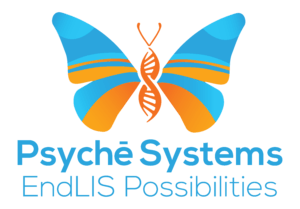Laboratory Information system software is undoubtedly one of the most critical investments a modern lab can make. This type of software can streamline many lab processes, including ordering, sample collection, batch management, and reporting.
Notwithstanding, LIS software is not created equal. Substandard products can cause more problems than they alleviate, while premium offerings can make work easier. Thus, before buying any software system, vet it thoroughly. Make sure it increases the accuracy and efficiency of your workflows.
At Psyche Systems, we know which questions can lead customers to the right product for their lab. The following article will guide readers through the questions labs should ask when evaluating LIS software vendors.
Feature Assessment
A good Laboratory Information System software should streamline all standard lab workflows. Specifically, the software system should be able to automate sample tracking, ordering, result reporting, accession, collaboration, and quality control.
Software with the capabilities mentioned above will make your team more productive. A sound software system will minimize diagnostic errors, enhance data management, and reduce the time spent on diagnostic tests. Perhaps even more important, the right software system should help your facility scale up.
Thus, before buying LIS software, ensure you understand the features, integration capabilities, customization, and scalability of the product you’re considering. This knowledge will help you judge whether the system will be beneficial.
Here are a few sample questions to help you learn the functionality and scalability of the LIS software you are eyeing.
- Can the LIS software integrate with our existing laboratory systems?
- Does the LIS software present compatibility issues with our equipment?
- Does the software have predefined, customizable templates for standard laboratory processes like reporting?
- Can the software keep pace with advancements in laboratory technology?
If your lab is more specialized, ensure that the LIS can handle the diverse range of tests you perform.
Regulatory Compliance and Security
HIPAA requires laboratories to keep patient data confidential and secure. Non-compliance can result in fines, loss of reputation, and legal action. Given the stringent data regulations, ideal Laboratory Information System software should provide best-in-class security features.
Some security features to look out for include encryption protocols and access controls. These features will help your lab avoid the legal and financial consequences of regulatory non-compliance.
When shopping for the best LIS software, remember to ask if the system’s security complies with industry standards. Also, enquire if the vendor updates their software to match the ever-changing landscape of security requirements.
Some of the most important questions to ask your vendor regarding compliance and security include:
- How does the LIS software help with regulatory compliance?
- Do you update the software to accommodate regulatory changes?
- Does the LIS encrypt sensitive data during transmission and storage?
- How does your LIS software restrict unauthorized access to patient data?
- Can the LIS track user activities and changes made to existing patient data?
- Can the system alert administrators about suspicious activities?
- Has the LIS undergone any external security audits?
Vendor Support and Training
New software can be hard to navigate and implement. Your team will need vendor training to understand the software’s features and best practices. This knowledge will help your staff harness the software’s full potential.
Your staff will also need ongoing vendor support to navigate new challenges. Given the importance of training and support, make sure the vendor provides it on an ongoing basis.
As a rule, buy from a vendor that offers comprehensive training sessions at the outset of the implementation process. Furthermore, a good vendor should provide ongoing support to address any issues in day-to-day operations.
Confirm the vendor offers training and support and that they do so via popular communication channels, especially those your company is familiar with. Good vendors should have quick response times through major communication platforms like email.
Some of the questions that would help you gauge a vendor’s availability for support and training include the following:
- How soon after buying your LIS system will you offer training?
- What training procedures do you use?
- What areas does your training focus on?
- Do you have a self-service knowledge base where customers can find help independently?
- Do you have training manuals, videos, or online modules for self-paced learning?
- Are training sessions conducted on-site or virtually?
- What channels are available for seeking support? Phone, email, or live chat?
- What is your average response time for support queries?
- Is technical support available 24/7?
Making Informed Decisions for Your Laboratory Information System Software
Competitive Laboratory Information System software products should help streamline lab processes. These processes include ordering, accession, auditing, and reporting. However, it is worth noting that not all LIS software will help enhance team productivity.
As such, before buying any laboratory system software, ensure its design meets your needs. You’ll also want to contact the vendor and have them clarify the software’s features, ease of implementation, and potential for scalability.
Schedule a demo of our innovative LIS software to see if we can help you find the right product for your lab.

